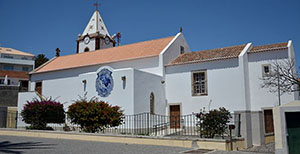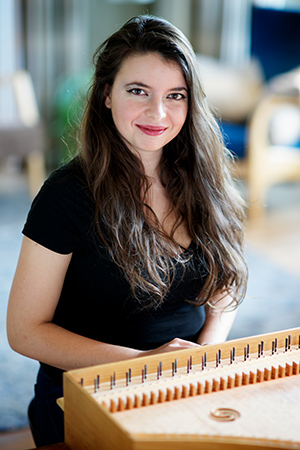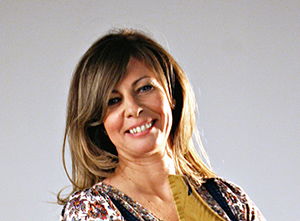
Saturday, October 19, 8.30 pm
Church of Nossa Senhora da Piedade (Parish of Porto Santo)
Ave maris stella - Mary, Star of the Sea
Mediae Vox Ensemble
Maria Bayley, organ and portative organ
Filipa Taipina, direction
Gregorian Chant / Annonym (15th c.)
Ave Maris Stella
(Antiphonale monasticum e Codex Faenza)
Antiphona ad Magnificat / Magnificat primi toni
(Antiphonale monasticum e Codex Perugia)
Salve Regina
(Antiphonale monasticum e Codex Trento)
Benedicamus Domino
(Antiphonale monasticum e Codex Faenza)
Jacopo da Bologna (1340-1386)
Soto l’impero del posente prinçe
Guillaume Dufay (1400-1474)
Ave Maris Stella
Hildegard von Bingen (1098-1179)
Ave, Maria auctrix
Oswald von Wolkenstein (1375-1457)
Ave Mater
Devotion to the Virgin Mary has been since the Middle Ages a favourite theme. The designation of Mary as “Star of the Sea” goes back to the 9th century, having been adopted as protectress and guide of those who travel by sea and those who live in coastal regions. It is thought that the expression stella maris was first used by Pascasius Radbertus (785-865), theologian and abbot of Corbie. Pascasius describes Mary, in a symbolic way, as the guide on the path of Christ and as a way of not drowning in the storms and waves of life.
Ave maris stella, “Hail, Star of the sea,” is a Marian devotional hymn written probably during the 9th century. However, it is only documented from the 10th century, in a marginal addition in two 9th-century manuscripts, one from Salzburg, now in Vienna, Austria, and the other from the Abbey of Saint Gall in Switzerland. This hymn was particularly popular during the Middle Ages, but it has been employed by many composers over the course of the history of music. From Dufay (c.1397-1474) to Peter Maxwell Davies (1934-2016), it has been used as the basis for very different compositions.
In this concert we emphasize the practice of alternatim, a Latin word meaning alternation, one of the liturgical-musical performance techniques of the Roman Catholic Church developed from the end of the Middle Ages. In this liturgical repertoire the texts are divided into verses and each verse is performed antiphonally by two groups of singers, between soloist and choir or even between choir and congregation. Alternatim was used not only for the Ordinary and Proper of the Mass, but also for hymns, the singing of the Magnificat, and of psalms and antiphons, amongst other kinds of pieces. Over time, this alternation came to be done between choir and instrumental groups, or an instrument, specifically the organ, considered the liturgical instrument par excellence. This practice was so successful that the verse became a music genre in itself, especially in renaissance and baroque music, principally in Italy and the Iberian Peninsula.
Surrounded by the Atlantic Ocean, we will have as our connecting thread the theme Ave Maris Stella, which, from Gregorian chant to Dufay, and including Hildegard von Bingen and pieces from codices from Faenza, Perugia and St Mark’s, Venice, will guide through music for voice and keyboard, composed or performed during the 15th century.
Filipa Taipina
Participants
Mediae Vox Ensemble
Founded in June 2004, the Mediae Vox Ensemble has as its objective the study and performance of mediaeval sacred music. Its performances depend exclusively on original manuscripts and notation. The Mediae Vox Ensemble gave its first concert on 15 September 2005 at the Convent of St Paul in Serra d’Ossa. Since then it has given concerts in Portugal and abroad in all kinds of festivals of music and early music, such as the Festival MusicAtlântico; Festival de Música Medieval de Carrazeda de Ansiães; Ciclo de Músicas Religiosas de Santander; Festival Internacional de Castelo Branco; Ciclo de Música Sacra da Igreja Românica de Rates; Festival de Música de Alcobaça – Cistermúsica; Jornadas Medievais do Castelo de Sesimbra; Jornadas de Música Antiga de Loulé; Festival Sonidos en el Tiempo and Festival Laus Polyphoniae in Antwerp. The Mediae Vox Ensemble has given the first modern performances of mediaeval repertoire and has concerts booked for 2019 and 2020 in early music festivals both in Portugal and abroad.
In this concert the group is made up of the singers and instrumentalists Esperanza Mara Filgueras, Mariana Moldão and Filipa Taipina, who is also responsible for the musical direction and research. Mediae Vox uses reproductions of mediaeval instruments made by Giordano Ceccotti, Mario Buonoconto, Marco Casiraghi and Stefan Keppler.
|
Maria Bayley Maria Bayley began her studies at the Gregorian Institute of Lisbon, studying harpsichord with Cristiano Holtz. She graduated in harpsichord at the Royal Conservatoire of The Hague, studying with Jacques Ogg. She took her masters in mediaeval and renaissance instruments at the Schola Cantorum Basiliensis with Corina Marti and in singing (specializing in early music) at the Conservatoire of Tilburg. She studied baroque harp as a second instrument in both masters’ degrees, with Emma Huijsser and Heindrun Rosenzweig. She won the first prize in the Carlos Seixas harpsichord competition (2005), in the National Harpsichord Competition (2008) and the JIMA prize (2012). With the ensemble Heptachordum she won first place in the baroque ensemble category in the Young Musicians’ Prize (2012). She collaborates frequently with the Bach Koor Holland and La Academia de los Nocturnos, Palma Choralis and Cantores Sancti Gregorii. She is vice-director of the Ars Hispana association, dedicated to the research into and publication of Spanish music. She founded the group Ars Lusitana in 2011, dedicated to the performance principally of Portuguese music. She is also a founder member of the Ensemble 258, dedicated to the performance of baroque music. She earned her masters in early music theory at the Royal Conservatoire of The Hague, having completed the courses for this programme at the Higher School of Music of Lisbon, where she studied with Ana Mafalda Castro. |
|
Filipa Taipina Born in Lisbon, Filipa Taipina received her doctorate from the Pontificio Istituto di Musica Sacra in Rome. She began her musical studies at the Gregorian Institute in Lisbon, were she took the general course in Gregorian chant. In 1990 she began studying at the Higher School of Music in Lisbon, where she finished her bachelors and licentiate in Gregorian chant. She is a member of CESEM – Centre for the Study of Sociology and Aesthetics in Music at the Universidade Nova in Lisbon. She taught between 1990 and 2015, having lectured at the Regional Conservatoire of Tomar, the Regional Conservatoire of Évora, at the Academia de Música Eborense and the Silva Marques Regional Conservatoire, of which she was Pedagogical Director and in charge of the general course in Gregorian chant. She has been a member of the Laboratorio Internazionali Permanente di Musica Sacra in Parma and was a founder of the Schola Gregoriana Internazionale, directed by Alessandro De Lillo. She has given a number of lectures in Portugal and Italy on the theme “Hildegard of Bingen – Woman, Abbey and Power”; “Hiledgard of Bingen – a woman out of her time” and on themes of sacred music from the Middle Ages, in particular on the Gradual of Lorvão 15, from the archive of the Monastery of Lorvão, the subject of her doctoral thesis. |

